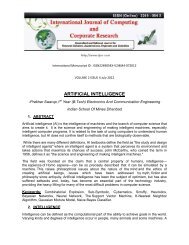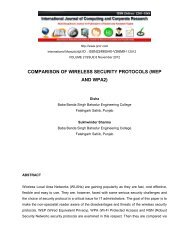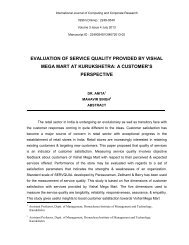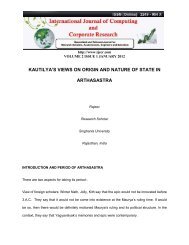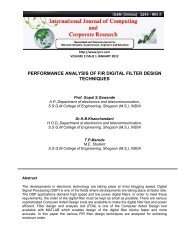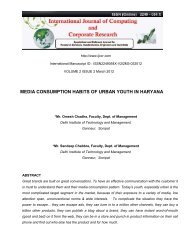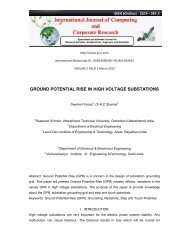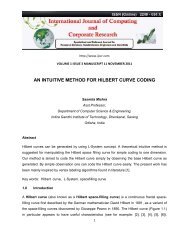success factors of erp implementation in smes in malaysia
success factors of erp implementation in smes in malaysia
success factors of erp implementation in smes in malaysia
Create successful ePaper yourself
Turn your PDF publications into a flip-book with our unique Google optimized e-Paper software.
http://www.ijccr.com<br />
International Manuscript ID : ISSN2249054X-V2I6M5-112012<br />
VOLUME 2 ISSUE 6 November 2012<br />
and managers <strong>of</strong> SMEs <strong>in</strong> any <strong>in</strong>dustries <strong>in</strong> Malaysia. In order to the contact those<br />
ent<strong>erp</strong>rises, the researcher have sent emails to many companies to make a list <strong>of</strong><br />
those small and medium companies that have implemented either ERP or even some<br />
forms <strong>of</strong> ERP. Plus, some small and medium-sized companies <strong>in</strong> Malaysia are<br />
plann<strong>in</strong>g to run ERP. For collection <strong>of</strong> data, the researcher went to companies for a<br />
structured <strong>in</strong>terview or questionnaire survey forms were sent by email to managers or<br />
ERP experts who are work<strong>in</strong>g or collaborat<strong>in</strong>g with the ent<strong>erp</strong>rises. Questionnaire<br />
send<strong>in</strong>g was sometimes one to many, because <strong>in</strong> few companies more than one<br />
person is responsible for ERP <strong>implementation</strong>, and they could respond to<br />
questionnaire. The survey is one-time cross-sectional and the unit <strong>of</strong> analysis <strong>of</strong> this<br />
study is the ent<strong>erp</strong>rise.<br />
5. Instrument Development<br />
In this study, the questionnaire was used to collect data. First part <strong>of</strong> the questionnaire<br />
was derived from questionnaire <strong>of</strong> PhD student thesis from Multimedia University <strong>in</strong><br />
field <strong>of</strong> ERP <strong>implementation</strong>, and second part is exc<strong>erp</strong>ted from the <strong>in</strong>vestigation <strong>of</strong><br />
ERP <strong>in</strong> SMEs <strong>in</strong> India and modified to this form for Malaysia SMEs and measurement<br />
is based on five Likert scale form strongly disagree to strongly agree (1 = Strongly<br />
Disagree, 2 = Disagree, 3 = Neutral, 4 = Agree, 5 = Strongly Agree). The questionnaire<br />
was validated by review<strong>in</strong>g with ERP specialists and academic sett<strong>in</strong>g as well. All<br />
experts <strong>in</strong> this study agreed on the appropriateness, clarity <strong>of</strong> the items and contents <strong>in</strong><br />
this questionnaire. This study showed that there were clear and comprehensive ways<br />
to respond to the questionnaire and all respondents had agreed that the questionnaire<br />
<strong>of</strong> the study has clarity and adequate content <strong>of</strong> the items. In addition, the reliability <strong>of</strong><br />
questionnaire was 0.87 based on Cornbach’s Alpha formula.<br />
6. Analysis and Results



